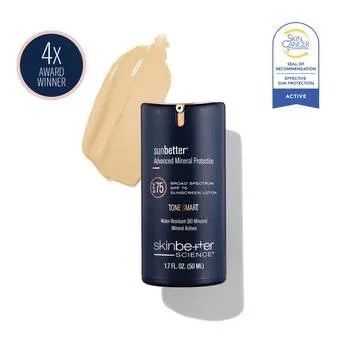Sunscreen Isn’t Optional… Especially After Aesthetic Treatments
How to choose one that actually protects your skin (and why medical-grade matters)
The Most Overlooked Step in Skin Recovery
Most people don’t realize airplane windows don’t block UVA rays… meaning your skin is exposed to intense, high-altitude UV every time you fly. Sunscreen isn’t just for sunny days on the ground, it’s critical at 30,000 feet.
After any skin treatment—laser, microneedling, Morpheus8, chemical peels, or even filler—your skin is in a vulnerable, regenerative state. It’s actively repairing, rebuilding collagen, and renewing the surface layer. And while most people focus on post-care products like serums and moisturizers, there’s one thing that determines whether those results last:
Sunscreen.
Without daily protection from UV exposure, healing skin is left open to:
DNA damage
Collagen breakdown
Barrier irritation
And most commonly: hyperpigmentation
Sun damage doesn't just come from a beach day. It comes from low-level, daily exposure even when it’s cloudy, cold, or indirect.
Which is why we emphasize sunscreen as a core part of your treatment protocol, not an afterthought.Why Sunscreen Is Critical for Preventing PIH
Post-inflammatory hyperpigmentation (PIH) happens when trauma to the skin (whether from acne, microneedling, or laser) triggers excess melanin production.
This is especially common in:
Medium to deep Fitzpatrick skin types (III–VI)
Clients with a history of pigment disorders
Those with compromised barriers or unprotected sun exposure post-treatment
Even indoor light, visible light, and cloudy-day UV can trigger melanin activity. That means pigment can form without a visible burn or tan often leaving clients confused or discouraged.
The easiest way to avoid this? A broad-spectrum, physical sunscreen applied daily, starting right after treatment.
UVA vs UVB: Why Sun Damage Doesn’t Require “Sun”
UV radiation comes in two forms:
UVA rays
Present all day, all year even through clouds and windows
Penetrate deeper into the skin
Cause premature aging, collagen breakdown, and long-term DNA damage
Not blocked by most standard glass
UVB rays
Strongest midday and on sunny days
Cause visible sunburns and redness
More easily blocked but still harmful to healing skin
Even on a cold, overcast day, UVA damage still occurs. This is why sunscreen isn’t about the weather. It’s about protecting the investment you’ve made in your skin’s structure and health.
Why Medical-Grade Sunscreen Is Worth It
Medical-grade sunscreens are:
Formulated for healing skin
Clinically tested for UVA/UVB protection
Made with stable, non-irritating physical filters
Blended with antioxidants, hydrators, and repair-supportive ingredients
Designed to wear well—so clients actually use them
Unlike retail SPF, these aren’t thick, greasy, or prone to oxidation. They’re elegant, safe post-procedure, and designed to work with your skincare, not against it.
Skinbetter Tone Smart SPF 75 is one of the most elegant sunscreens we’ve ever used: 100% mineral, adaptive tint, and soft-focus finish that blends seamlessly into your skin. It protects like a medical-grade SPF and wears like a primer, no white cast, no excuses.
Pavise isn’t just sunscreen, it’s engineered skin defense. With DiamondCore® zinc oxide and built-in antioxidant support, it protects against UV, visible light, and pollution, all while feeling weightless and invisible on the skin. This is SPF that works as hard as your skincare.
The Sunscreens We Trust at Core
We don’t carry dozens of options—we carry a select few that work across skin types, treatment stages, and lifestyles.
Skinbetter Tone Smart SPF 75
100% mineral-based with adaptive tint technology
Soft-focus finish with no white cast
Blends to your skin tone and can replace makeup
Tested post-laser and safe for daily wear
Why we recommend it: Elegant enough for everyday use, strong enough for post-treatment protection. Patients actually wear this—and love it.Pavise Dynamic Age Defense SPF
Powered by DiamondCore® zinc oxide, a next-generation UV filter
Infused with antioxidants and DNA repair support
Free of fragrance, fillers, and irritation triggers
Safe for sensitive and melanin-rich skin types
Why we recommend it: A deeply protective, high-tech sunscreen that blends luxury and science. Especially good for pigment-prone skin or those healing from treatments.iS Clinical Eclipse SPF 50+
Lightweight physical-chemical hybrid
Contains vitamin E for antioxidant protection
Water-resistant and makeup-friendly
Easy to apply and reapply
Why we recommend it: Simple, effective, portable. Great as a daily wear option and easy for clients new to regular SPF use.When and How to Use Sunscreen After Treatments
Start:
Immediately post-treatment if your provider applies it
Daily beginning the next morning if instructed otherwise
Use:
Physical (mineral) SPF with zinc oxide or titanium dioxide
Apply 15 minutes before sun exposure
Reapply every 2 hours if outdoors or exposed to direct light
Pair with:
Hats
Sunglasses
Limited midday sun exposure, especially in the first 7–10 days post-treatment
Even the best laser or microneedling results can be reversed by one unprotected walk outside especially for clients prone to pigment or in higher Fitzpatrick types.
Protection Is the Final Step of Every Great Skin Plan
You’ve invested in your skin. You’ve triggered collagen. You’ve corrected pigment. You’ve rebuilt structure.
Don’t let ambient UV undo all of it.
The right sunscreen:
Protects your results
Prevents pigment
Supports healing
Reduces inflammation
And helps maintain even, clear, strong skin over time
It’s not just a product. It’s your insurance policy for everything you’ve worked for.




